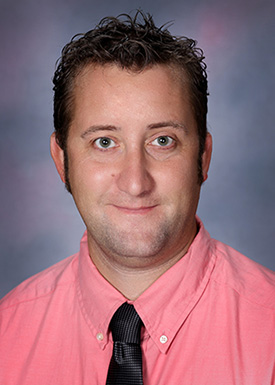Professor, students to share in research project funded by National Science Foundation

09/25/17
HAYS, Kan. - Research by a Fort Hays State University faculty member and two graduate students will be funded by a portion of the National Science Foundation grant awarded to Kansas, which was announced Tuesday in an NSF news release.
"Fort Hays State will be awarded about $273,000 over the next five years," said Dr. Mitchell "Mitch" Greer, assistant professor of biological sciences at FHSU, who will be the supervising researcher.
"This money will be used to support two graduate students and fund their research related to the microbes of invasive plant species," said Greer.
He said the students will be selected once the funding arrives at the university, probably beginning in the fall 2019 semester. In addition to the two full-time graduate student researchers, who will each work about two and a half years, the funding will also support a part-time undergraduate student researcher each year.
"The FHSU project will be looking at Old World Bluestem - yellow bluestem and Caucasian bluestem," said Greer. "This is specific to FHSU, but we will use similar methods to the larger grant."
The NSF grant to Kansas is through the foundation's Established Program to Stimulate Competitive Research (EPSCoR), which is designed, said the NSF news release, to build "research and development capacity in states that demonstrate a commitment to research but have thus far lacked the levels of investment seen in other parts of the country."
"The EPSCOR program always awards grants to whole states in an effort to stimulate competitive research by promoting collaboration between universities within the state," said Greer. The Kansas grant will bring together Fort Hays State University, the University of Kansas, Kansas State University, Wichita State University and Haskell Indian Nations University.
"The proposed work looks at innovative ways to investigate the microbiomes of prairie ecosystems and see how plant, soil, and aquatic microbes are related to or influenced by one another across a precipitation gradient," which, said Greer, is west to east in Kansas - from least to most precipitation.
"FHSU will be assisting in data collection and instrument maintenance for the three western-most research sites as part of the larger project. FHSU will also be conducting the Old World Bluestem research that ties into the bigger microbiome grant while also linking to my area of research focus of invasive grass species," he said.